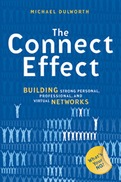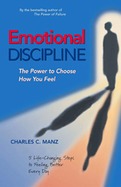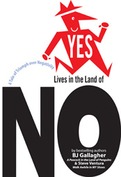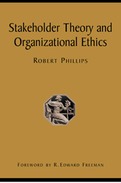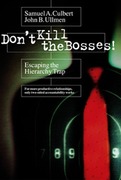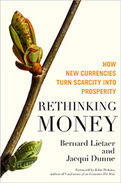2008
•Offers a systematic approach to developing your networking skills—including an “NQ test” to help you quantify your networking ability
•Features tools and techniques specific to each type of network, as well as advice from leading executives, researchers, and thought leaders
•Copublished with ASTD, the leading association for human resource development professionals
2003
• Winner of the Gold Award for the Self-Help Category for the 2003 ForeWord Magazine Book of the Year Awards
• Includes a life-changing five-step process for assessing and managing key factors in the mind, body, emotions, and spirit that shape how we feel
• Debunks the idea that how we feel is beyond our personal influence and shows that, on the contrary, we can choose how we feel every day
• By the author of The Power of Failure and The Leadership Wisdom of Jesus
- Cowritten by the authors of the international bestsellers A Peacock in the Land of Penguins (more than 250,000 copies sold) and Walk Awhile in MY Shoes (more than 750,000 copies sold)
- A lively parable that tackles a tough subject--how to overcome negativity to find success, happiness, and affirmation
- Includes practical tips, tools, and strategies to help readers apply the lessons of the parable in their personal and professional lives
- Listen to a podcasted interview with BJ Gallagher on Total Picture Radio
- The only detailed, comprehensive treatment of stakeholder theory-the most popular framework for discussions of business ethics-currently in print
- Examines stakeholder theory from the perspective of several fields of study, including strategic management, economics, moral and political philosophy, social psychology, and environmental ethics
- Provides a means for determining who are and are not stakeholders and why-including such controversial stakeholder candidates as competitors, activists, and the natural environment
- Offers a revolutionary approach to management that preserves the positive aspects of hierarchical structures while overcoming the warped communications and poor morale that often plague them
- Provides the practical means for achieving open and above-board boss/subordinate give-and-take
- Uses case studies from the authors' consulting practice to show how their approach leads to honest communication, authentic teamwork, esprit de corps, and greater accountability
2013
Rethinking Money demonstrates that new currencies can not only resolve money's inadequacies but also energize new behaviors that can deliver the healthier world we fervently desire.
As the United States struggles and the economies of Europe stagger, we fail to see a way out of this agonizing cycle of repeated financial meltdowns. In fact, there are thousands of ways to solve not only our recurring fiscal crises but our ongoing social and ecological debacles as well. Solutions are already in place where terrible problems once existed. The changes came about not through increased conventional taxation, enlightened self-interest, or government programs but by people simply rethinking the concept of money. With this restructuring, everything changes. In this visionary book, Bernard Lietaer and Jacqui Dunne explore the origins of our current monetary system—built on bank debt and scarcity—revealing the surprising and sometimes shocking ways its unconscious limitations give rise to so many serious problems. But there is hope. The authors present stories of ordinary people and their communities using new money, working in cooperation with national currencies, to strengthen local economies, create work, beautify cities, and provide education—and so much more is possible. These real-world examples are just the tip of the iceberg—over 4,000 cooperative currencies are already in existence. The book provides remedies for challenges faced by governments, businesses, nonprofits, local communities, and even banks. It demystifies a complex and critically important topic and will strike a deep chord with readers eager to find innovative, meaningful solutions that will do far more than restore prosperity—it will provide the framework for an era of sustainable abundance.- Describes an innovative way ordinary people are creating solutions to address a wide variety of problems globally
- Reveals both the devastation caused by our current money system and ways new currencies are being designed to repair that damage
- Coauthored by one of the worlds leading experts in money systems and an award-winning journalist
- Click here for the press release; contact [email protected] for media review copies
There is a wayin fact, thousands of waysto stop the seemingly inevitable slide toward global self-destruction. Solutions are already in place throughout the world where terrible problems once existed. The changes came about not through the redistribution of wealth, increased taxation, enlightened corporate self-interest, or government handouts but by people simply rethinking the concept of money and acting from this new perspective. With that restructuring, everything changes.
Bernard Lietaer and Jacqui Dunne explain the origins of our current monetary systembuilt on bank debt and based on scarcityand how its inherent limitations drive our ongoing social, economic, and ecological debacles. They then take readers on a fascinating expedition that chronicles stories of ordinary people and their communities solving critical issues that affect us all by using new money systems in tandem with conventional money. These accounts are just the tip of the icebergover 4,000 cooperative currencies are now in circulation.
Rethinking Money demonstrates that new currencies can not only resolve moneys inadequacies but also energize new behaviors that can deliver the healthier world we fervently desire. For instance, currencies have been designed to strengthen local economies, create work, beautify a city, and provide health care.
The book provides remedies for challenges faced by governments, businesses, nonprofits, local communities, and even banks. It speaks clearly about a complex subject and promises to strike a deep chord with readers eager to find meaningful solutions to the problems that threaten our security, our prosperity, and our future.


